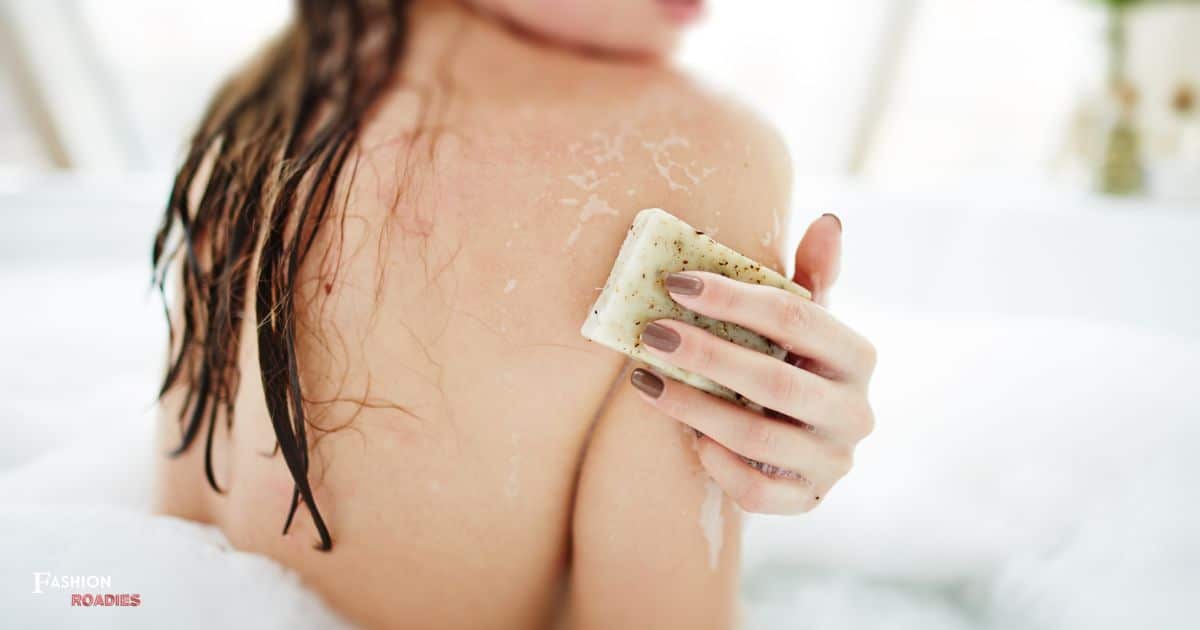Unlock the secret to radiant, healthy skin and discover the path to belonging in a world that values self-care. Embark on a transformative journey as we delve into the art of skin care, revealing the essential steps to properly nurture and protect your skin. From cleansing rituals to the power of moisturization, we will guide you through a comprehensive regimen designed to unveil your true beauty. Join us as we unveil the key to a luminous complexion and a sense of belonging in your own skin.
Key Takeaways
- Use a gentle cleanser and moisturizer suitable for your skin type.
- Protect your skin from the sun with sunscreen and protective clothing.
- Exfoliate regularly to remove dead skin cells and reveal a brighter complexion.
- Get enough sleep to allow your skin to repair and rejuvenate.
Cleansing Your Skin
To properly cleanse your skin, use a gentle and effective cleanser that suits your skin type. Cleansing is an essential step in any skincare routine, as it helps remove dirt, oil, and impurities that can clog pores and lead to breakouts. It is important to choose a cleanser that is specifically formulated for your skin type, whether it be oily, dry, or sensitive.
Look for cleansers that are free of harsh chemicals and fragrances, as these can strip the skin of its natural oils and cause irritation. When cleansing, be sure to use lukewarm water and gently massage the cleanser onto your face in circular motions. Rinse thoroughly and pat dry with a clean towel. By properly cleansing your skin, you create a clean canvas for the next step in your skincare routine: moisturizing.
Moisturizing Your Skin
A crucial step in your skincare routine is to regularly moisturize your skin with an appropriate amount of a high-quality moisturizer. Moisturizing your skin helps to keep it hydrated, soft, and supple, giving it a healthy and youthful appearance. When selecting a moisturizer, look for one that suits your skin type and addresses any specific concerns you may have, such as dryness, oiliness, or sensitivity.
It is important to apply moisturizer to clean, damp skin, as this helps to lock in moisture effectively. Gently massage the moisturizer into your skin using upward circular motions, focusing on areas that tend to be drier, like the cheeks and forehead. By moisturizing your skin regularly, you create a protective barrier that helps to prevent moisture loss and maintain a healthy skin barrier. With your skin adequately moisturized, you can now move on to the next step: protecting your skin from the sun.
Protecting Your Skin From the Sun
Moving from moisturizing your skin, the next crucial step in proper skincare is protecting your skin from the sun. Sun exposure can lead to premature aging, dark spots, and even skin cancer. To ensure your skin stays healthy and youthful, it is important to adopt sun protection measures. Here are some effective ways to shield your skin from the harmful UV rays:
| Protective Measures | Description |
|---|---|
| Wear sunscreen | Apply a broad-spectrum sunscreen with an SPF of at least 30 every day, even on cloudy days. Reapply every two hours. |
| Seek shade | Avoid direct sunlight between 10 am and 4 pm when the sun’s rays are strongest. |
| Wear protective clothing | Cover your skin with long-sleeved shirts, pants, wide-brimmed hats, and sunglasses. |
Exfoliating Your Skin
Exfoliation is an essential step in maintaining healthy skin, as it helps to remove dead skin cells and reveal a brighter, smoother complexion. By gently sloughing off the outer layer of skin, exfoliation promotes cell turnover, unclogs pores, and prevents breakouts. It also enhances the effectiveness of other skincare products by allowing them to penetrate deeper into the skin.
To exfoliate your skin effectively, choose a gentle scrub or chemical exfoliant that suits your skin type. Avoid harsh scrubs with large particles that can cause irritation. Use circular motions to massage the exfoliant onto damp skin, focusing on areas prone to dryness or congestion. Remember to moisturize after exfoliating to replenish hydration and protect your newly revealed skin. Regular exfoliation, done once or twice a week, will help you achieve a youthful, radiant complexion.
One crucial factor in maintaining healthy skin is ensuring you get an adequate amount of sleep.
Getting enough sleep is not only important for your overall health and well-being, but it also plays a significant role in the condition of your skin. Lack of sleep can lead to various skin issues, including dullness, dryness, and even breakouts. Here are a few reasons why prioritizing sleep is essential for your skin:
- Cellular Repair: During sleep, your body repairs and rejuvenates itself, including your skin cells. This process helps in the production of collagen, a protein that keeps your skin firm and supple.
- Lack of sleep can hinder this repair process, leading to premature aging signs like fine lines and wrinkles.
- Reduced Inflammation: Adequate sleep helps reduce inflammation in the body, including the skin. This can result in a clearer complexion and reduced redness or puffiness.
Eating a Healthy Diet
A well-balanced and nutritious diet is essential for maintaining healthy skin, building upon the importance of getting enough sleep. When it comes to caring for your skin, what you eat can have a significant impact. Certain foods are known to promote skin health, such as fruits, vegetables, whole grains, and lean proteins. These foods provide essential vitamins, minerals, and antioxidants that help nourish the skin and protect it from damage caused by environmental factors.
Consuming foods rich in omega-3 fatty acids, like fatty fish and walnuts, can help reduce inflammation and keep the skin looking youthful. It’s important to hydrate your skin from the inside out by drinking plenty of water and avoiding excessive intake of sugary and processed foods, which can contribute to skin problems. By incorporating a variety of nutritious foods into your diet, you can support the overall health and appearance of your skin.
Managing Stress for Healthy Skin
- To effectively care for your skin, it is crucial to manage stress levels, as stress can negatively impact the health and appearance of your skin.
- Practice relaxation techniques: Incorporate activities like deep breathing exercises, meditation, or yoga into your daily routine to reduce stress and promote healthy skin.
- Get regular exercise: Engaging in physical activities releases endorphins, which help reduce stress levels. Aim for at least 30 minutes of moderate exercise every day to keep your skin and mind in good shape.
- Take a walk in nature or try a new workout class to make exercise enjoyable and relieve stress.
- Prioritize self-care: Make time for activities that help you relax and unwind, such as taking baths, reading a book, or listening to calming music. Self-care can help reduce stress and promote overall well-being, reflecting positively on your skin.
Knowing Your Skin Type
To continue our discussion on effectively caring for your skin, it is important to understand your skin type. Knowing your skin type allows you to choose the right products and develop a personalized skincare routine that addresses your specific needs. There are four main skin types: normal, dry, oily, and combination. Here is a table that can help you determine your skin type:
| Skin Type | Characteristics |
|---|---|
| Normal | Balanced moisture levels, minimal blemishes |
| Dry | Tightness, flakiness, and dullness |
| Oily | Excess sebum production, shine, and enlarged pores |
| Combination | Oily T-zone (forehead, nose, and chin) and dry cheeks |
Identifying your skin type is the first step towards achieving healthy and radiant skin. It allows you to make informed decisions when selecting skincare products and tailor your routine accordingly. Remember, each skin type requires different care, so understanding yours will help you give your skin the attention it deserves.
FAQ’s
Can I Use the Same Cleanser for My Face and Body?
Yes, using the same cleanser for your face and body can be convenient, but it might not be the most effective. The skin on your face is more delicate and requires a gentle cleanser specifically formulated for the face.
How Often Should I Moisturize My Skin?
When it comes to moisturizing your skin, it is important to consider your skin type and environmental factors. A general guideline is to moisturize twice a day, morning and night, to maintain optimal hydration and promote healthy skin.
What Is the Difference Between Physical and Chemical Sunscreens?
Physical and chemical sunscreens differ in how they protect the skin from harmful UV rays. Physical sunscreens contain minerals that form a physical barrier, reflecting the sun’s rays. Chemical sunscreens contain organic compounds that absorb and convert UV rays into heat.
Is It Necessary to Exfoliate if I Have Dry Skin?
Exfoliation can be beneficial for all skin types, including dry skin. It helps to remove dead skin cells and promote cell turnover, resulting in a smoother and more radiant complexion. However, it is important to choose a gentle exfoliator and not overdo it, as excessive exfoliation can further dry out the skin.
How Does Lack of Sleep Affect My Skin?
Lack of sleep can have negative effects on your skin. It can lead to increased inflammation, breakouts, and dullness. Adequate sleep is essential for skin repair and rejuvenation, ensuring a healthy and vibrant complexion.
Conclusion
In conclusion, caring for your skin is essential for maintaining its health and beauty. By following proper cleansing, moisturizing, sun protection, exfoliation, and sleep routines, you can nourish your skin. Additionally, a healthy diet and managing stress contribute to healthy skin. Understanding your skin type is crucial in choosing the right products and treatments. Remember, your skin is a reflection of your overall well-being, so treat it with care and symbolism to truly enjoy its radiant beauty.











